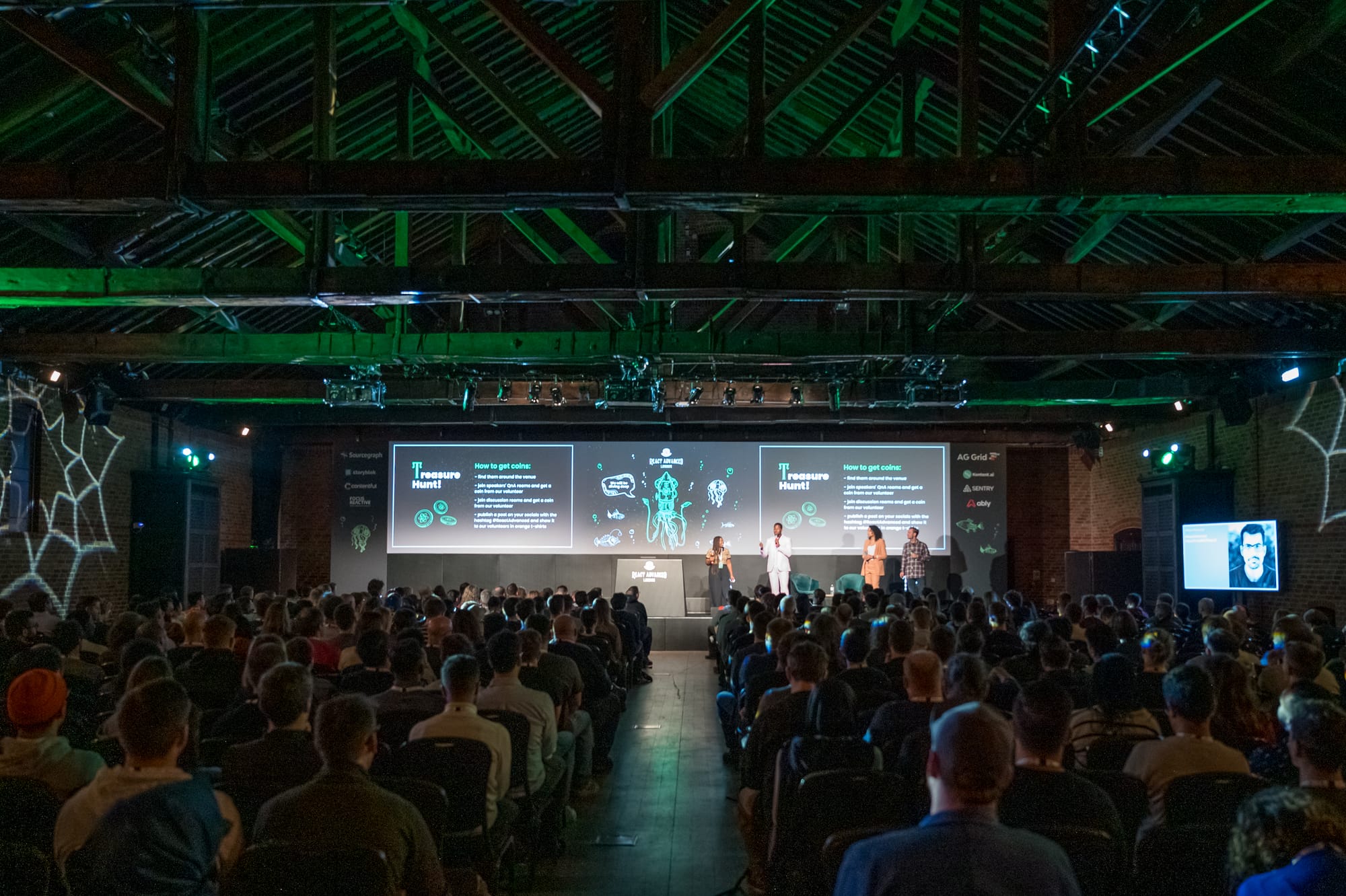You're Sponsoring a Developer Conference, What's Next?

Sponsoring a developer conference is a strategic move that can position your brand in front of a highly engaged technical audience. However, securing the sponsorship is just the first step. To maximize your investment and leave a lasting impression, it's crucial to prepare strategically. Here’s a comprehensive guide to help event marketing professionals gear up for a successful sponsorship.
1. Define Clear Goals
Start by clarifying your objectives for sponsoring the conference. Are you aiming to:
- Increase brand awareness?
- Generate leads?
- Launch a new product or feature?
- Engage with developers directly for feedback or recruitment?
Understanding your goals will shape every aspect of your sponsorship strategy, from booth design to promotional activities.
2. Understand the Audience
Dive into the conference demographics. What programming languages, tools, or technologies do the attendees use? Are they senior developers, students, or decision-makers? Tailor your messaging and offerings to resonate with their interests and needs.
Tip: don't hesitate to ask for a detailed info about the attendees from the event organizer.
3. Plan Your Booth Design
Your booth is the face of your sponsorship. Design it to:
- Attract attention: Use eye-catching visuals, bold colors, and interactive elements.
- Communicate value: Highlight your key messages clearly with banners, demos, or videos.
- Encourage engagement: Include hands-on demos, giveaways, or contests that tie back to your product or service.
Tip: Place welcoming swag or raffle prizes at the front of your booth to encourage initial interactions.
4. Develop a Strong Pre-Event Promotion Plan
Don’t wait for the conference to start building connections. Promote your sponsorship in advance by:
- Announcing your participation on social media, your website, and email newsletters.
- Teasing special activities or giveaways attendees can expect at your booth.
- Engaging with the event’s hashtag and community to create buzz.
Consider offering an exclusive incentive for visiting your booth, such as early access to a product feature or a free consultation.
5. Equip Your Team
Your on-site team is crucial to your success. Ensure they are:
- Knowledgeable: Train them on your goals, messaging, and the audience’s expectations.
- Approachable: Select team members who are personable and enthusiastic.
- Prepared: Provide tools such as pitch scripts, FAQs, and branded materials to support interactions.
Tip: Include developers or technical experts on your team to address detailed questions directly.
6. Leverage Add-Ons and Sponsorship Perks
Review your sponsorship package for opportunities to amplify your presence, such as:
- Speaking opportunities: Deliver a session/workshop to showcase your expertise.
- Branding extras: Use catching stickers, ads, or signage to increase visibility.
- Digital integrations: Advertise in the conference app or website to connect with attendees online.
7. Engage Attendees During the Event
Interactive activities can help you stand out:
- Host a mini-workshop or code challenge.
- Offer fun giveaways that developers love, like custom T-shirts, stickers, or gadgets.
- Collect feedback about your product through surveys or informal chats.
Remember to collect contact information via QR codes, business cards, or sign-up sheets for post-event follow-up.
8. Create Real-Time Content
Capitalize on your presence by sharing live updates, photos, or behind-the-scenes content on social media. Highlight memorable moments, attendee engagement, and key takeaways. This not only amplifies your exposure but also allows non-attendees to engage with your brand.
9. Measure Your Success
After the event, evaluate your performance against your initial goals:
- How many leads did you generate?
- How much traffic did your booth attract?
- What was the social media engagement like?
Use tools like CRM systems, badge scanning apps, or survey feedback to analyze results and refine your strategy for future sponsorships.
10. Nurture Post-Event Relationships
Don’t let your efforts end when the conference does. Follow up with leads promptly, whether it’s through email, LinkedIn, or phone calls. Share valuable resources like whitepapers, blog posts, or product updates tailored to their interests. Building these relationships will help you convert event connections into long-term partnerships.
Conclusion
Sponsoring a developer conference is an incredible opportunity to elevate your brand’s visibility and engage directly with your target audience. By planning meticulously, executing effectively, and following up diligently, you can maximize the ROI of your sponsorship and position your brand as a trusted partner in the developer community.
For the past 10 years, GitNation has been at the forefront of organizing developer conferences focused on JavaScript, the language dominating web development. Interested in sponsoring our events? Contact us: [email protected]
